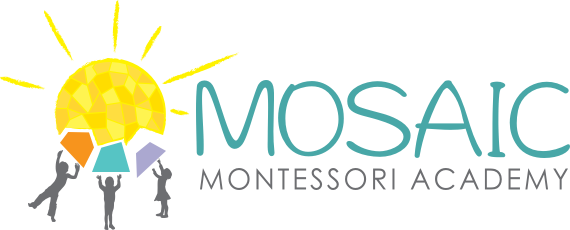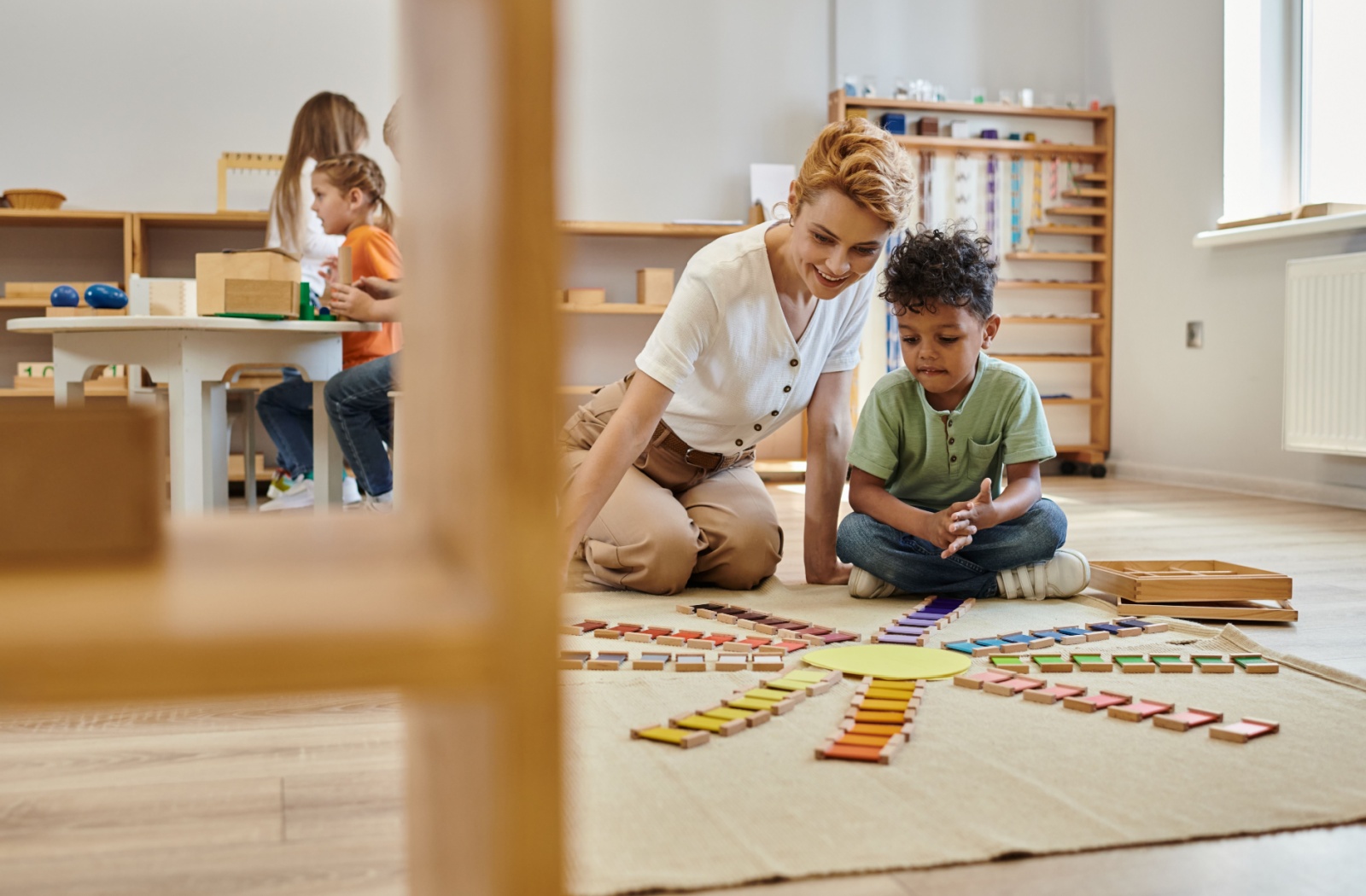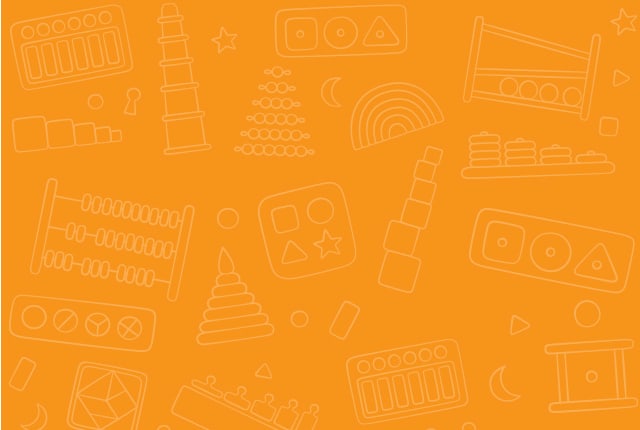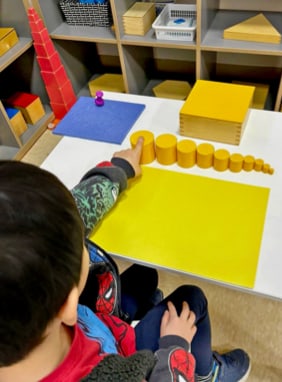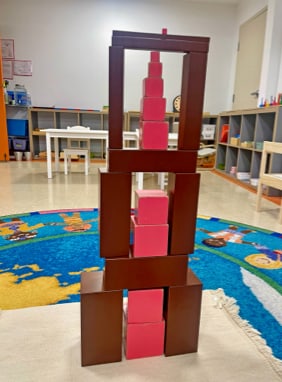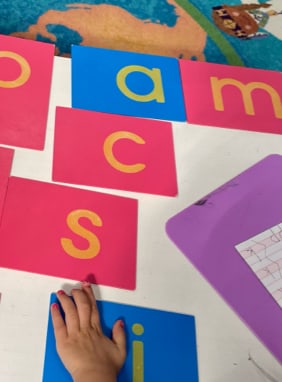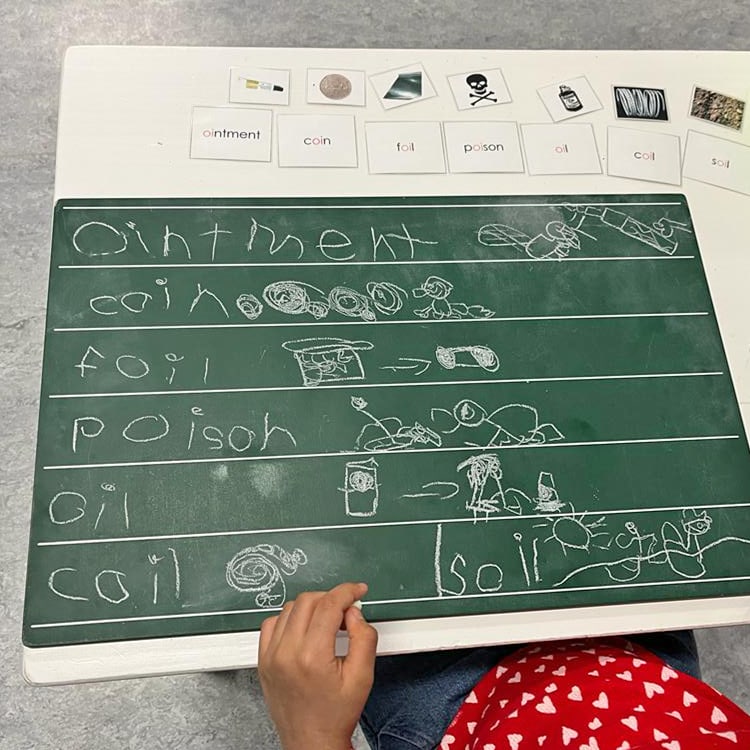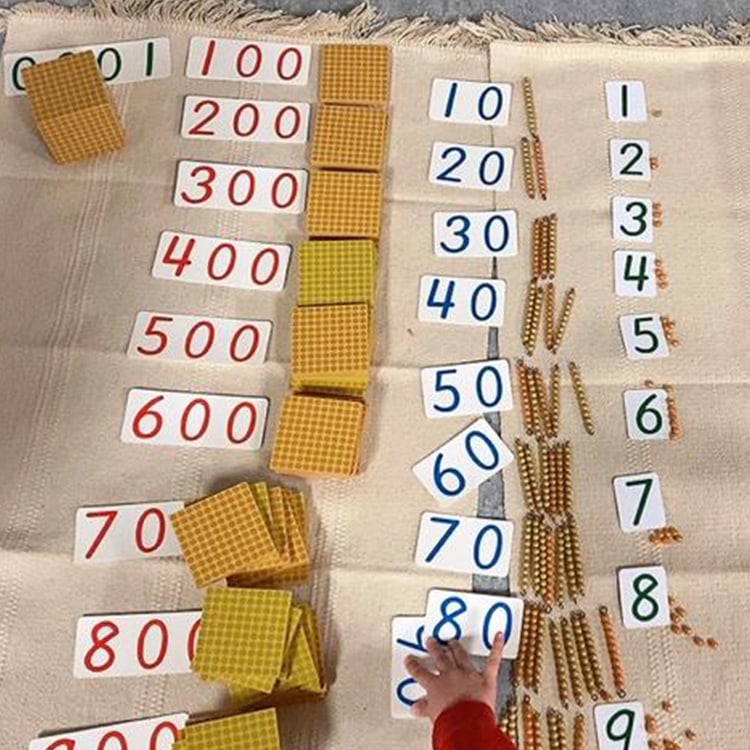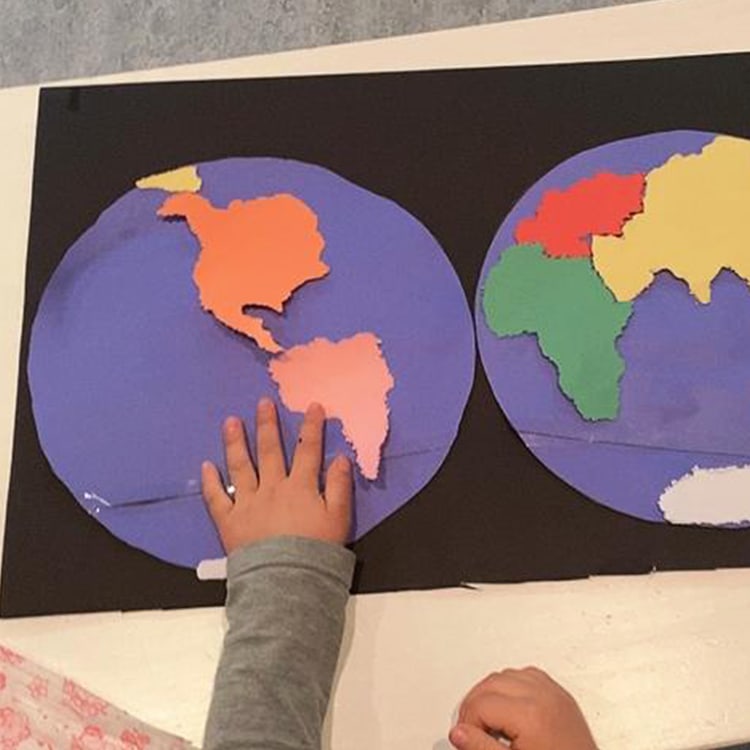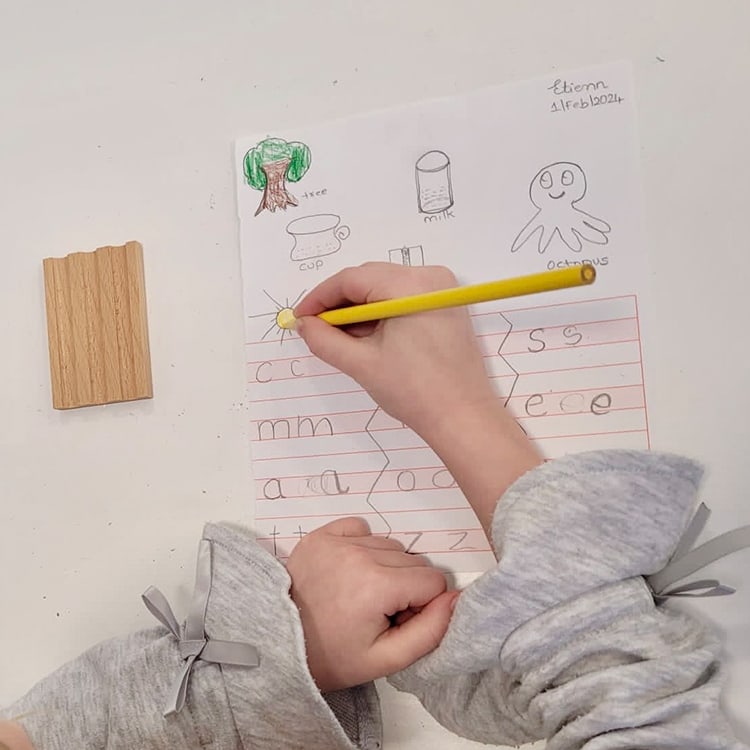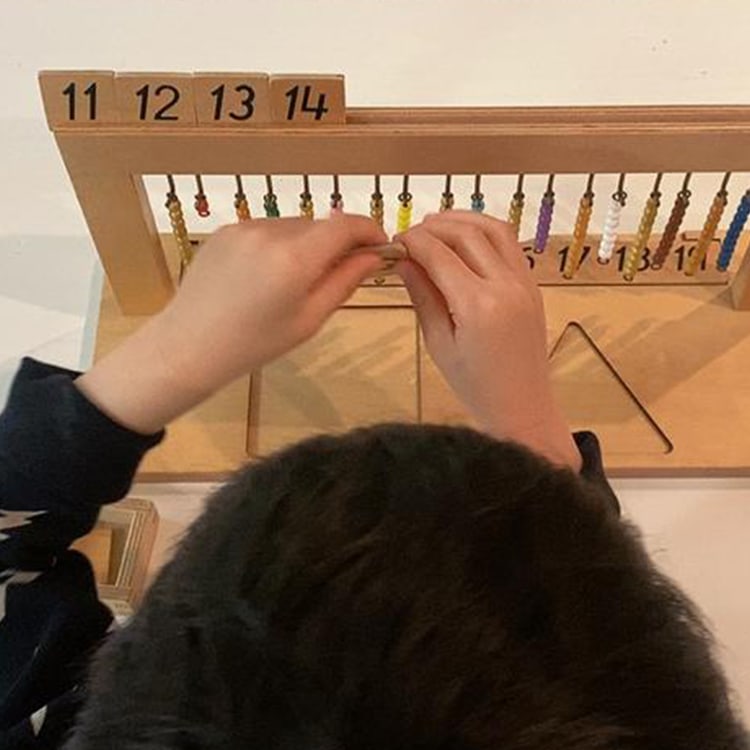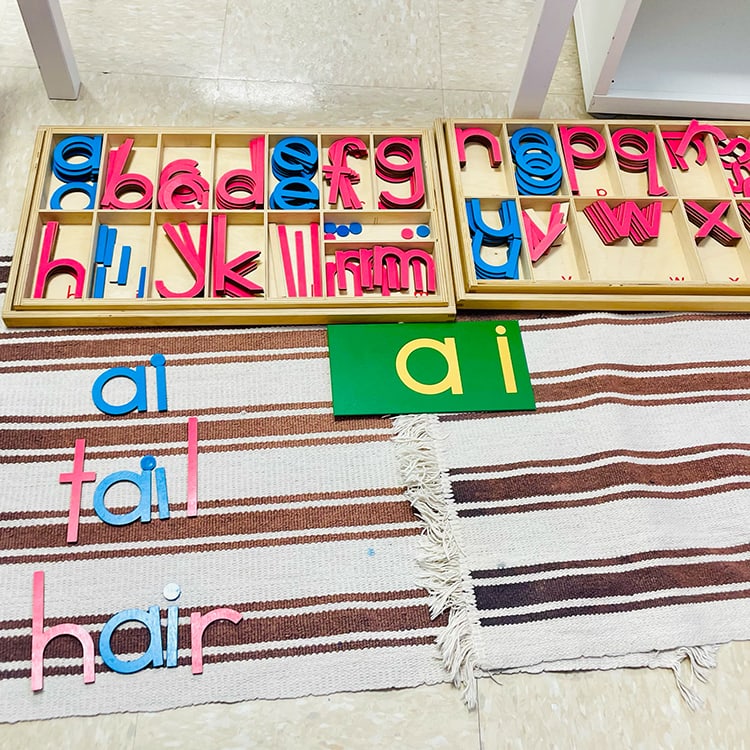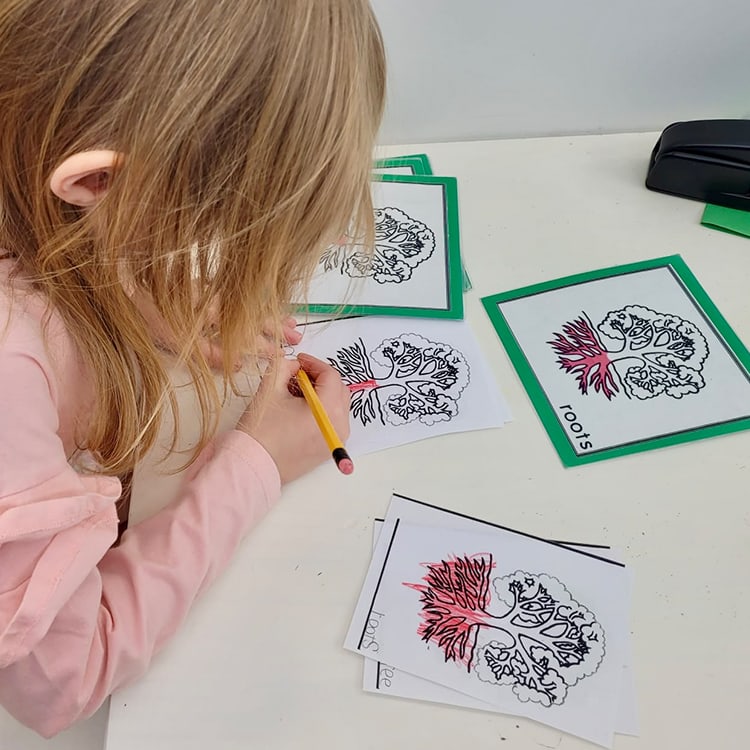Choosing the right kindergarten for your child is a pivotal decision that sets the foundation for their academic and personal growth. Among the many educational approaches available, Montessori kindergarten stands out as a unique and effective method for nurturing a child’s curiosity, creativity, and love for learning.
Montessori kindergarten helps children build independence and grow their self-confidence, sparks creativity and sharpens problem-solving skills, all while weaving social and emotional learning into their daily experiences.
Learning more about the Montessori method can help you decide if Montessori kindergarten is the right choice for your child and their needs for personal, social, and academic growth.
What Is the Montessori Kindergarten Method?
The Montessori method, developed by Dr. Maria Montessori, is an educational philosophy focused on child-led learning. It emphasizes independence, hands-on exploration, and respect for a child’s natural development. Montessori kindergarten applies these principles by creating an environment designed to foster curiosity and give children the tools and freedom to learn at their own pace.
Montessori Kindergarten vs. Traditional Kindergarten
Unlike traditional kindergarten, which often follows a rigid curriculum with teacher-led activities, Montessori classrooms encourage children to explore and learn through self-directed activities. The third year of a Montessori early childhood program, commonly known as the kindergarten year, is particularly critical.
During this period, children build on the foundation they’ve established in earlier years, reinforcing concepts in language, mathematics, and even science. This continuity allows children to integrate and internalize their learning, so they don’t need to re-learn basic skills if they move between different educational methodologies.
Furthermore, Montessori kindergartens offer multi-age classrooms. This means that kindergarten students often interact with younger children, giving them opportunities to take on leadership roles, develop social skills, and reinforce their understanding by mentoring others—a dynamic rarely found in traditional settings.
How Montessori Kindergarten Fosters Child Development
Montessori kindergarten is designed to develop not just academic achievement but also the essential traits of independence, creativity, and critical thinking. Its child-centered approach means that your child’s intellectual and emotional growth is nurtured holistically.
Independence & Self-Confidence
At the heart of the Montessori philosophy is the belief in children’s capability. By providing age-appropriate tools and guidance, Montessori programs encourage children to take ownership of their learning. From selecting their own activities to completing tasks on their own, kids can build confidence in their abilities and develop a sense of independence that stays with them for life.
Creativity & Problem-Solving
Montessori classrooms are filled with hands-on materials that invite children to solve problems creatively. For example, learning fractions might be as simple as manipulating tangible objects like fraction circles. This process not only builds a deep understanding of academic concepts but also nurtures creativity and resourcefulness.
Social & Emotional Learning
By interacting with classmates of varying ages, Montessori kindergarten students learn empathy, patience, and cooperation. Group activities emphasize teamwork and respect for others, while individual tasks allow children to develop focus and self-regulation.
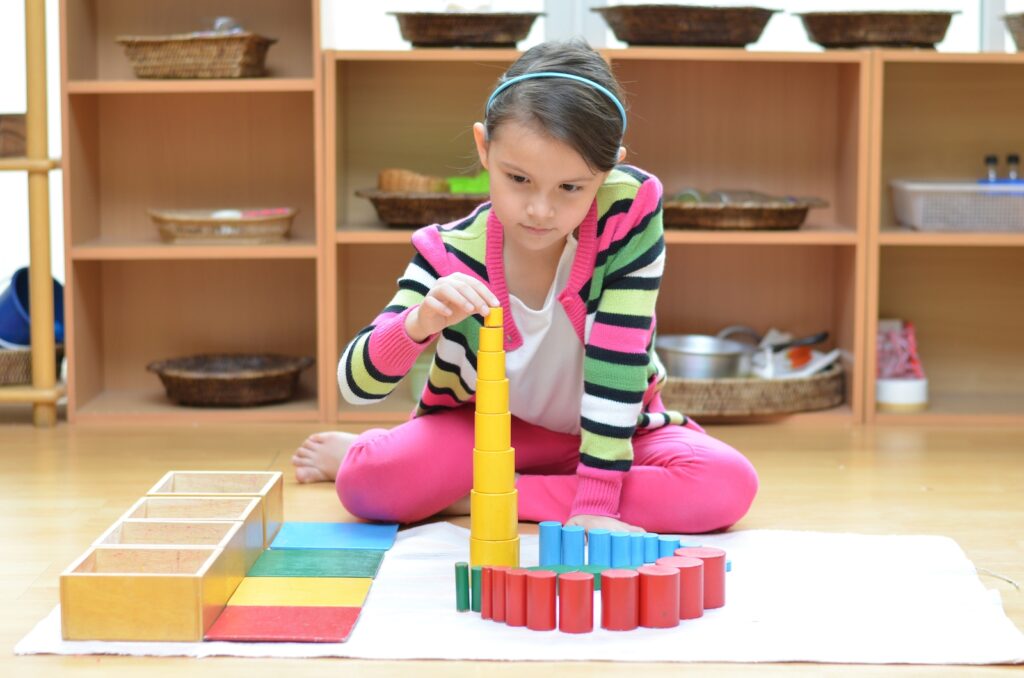
Academic Excellence through Montessori Kindergarten
Montessori education builds a strong foundation in literacy, numeracy, and other academic skills through experiential learning. The materials and methods used in Montessori kindergartens help children understand concepts rather than just memorize facts.
Hands-On Learning
Some children learn best through manipulation of their environment and sensory engagement. Montessori materials provide concrete experiences of abstract ideas, such as math concepts and grammar rules, which can help children grasp these ideas more effectively than traditional rote learning.
Individualized Pacing
Every child learns differently, and the Montessori approach respects that. Whether a child is advancing rapidly in 1 area or needs extra time in another, Montessori meets each child where they are. This individualized attention helps students stay engaged and prevents frustration.
Peer Learning Opportunities
The multi-age classroom extends academic benefits beyond individual learning. Kindergarten students often take on mentorship roles for younger peers while also learning from those around them. This dynamic fosters collaboration and reinforces students’ understanding.
Developmental Readiness
By the time children complete Montessori kindergarten, they’re equipped not only with academic skills but also with the confidence and readiness to progress to more abstract learning concepts. They feel secure about their abilities, building a lifelong love for learning.
Practical Benefits for Parents
For parents, Montessori kindergarten offers more than just peace of mind. The approach supports not just children, but the family dynamic as a whole.
Harmonious Transitions
Many parents worry about the shift from Montessori kindergarten to traditional elementary schools. The skills developed in Montessori—critical thinking, adaptability, and social capabilities—actually make this transition smoother. Montessori children are often better prepared to thrive in various learning environments.
A Child-Centered Approach
Montessori values place great emphasis on children’s well-being. By encouraging independence and self-discovery, the approach nurtures emotionally resilient and confident individuals.
A Sense of Community
Montessori schools often cultivate a close-knit community among families, educators, and students. This shared sense of purpose enhances the overall experience, offering parents additional resources and a supportive network.
Addressing Common Concerns About Montessori Kindergarten
Is Montessori Too Expensive?
While Montessori schools can seem costly, they provide exceptional value. The hands-on materials, small class sizes, and individualized learning plans contribute to a rich and personalized education that prepares children for long-term success.
Is Montessori Only for Academically Gifted Kids?
No. Montessori benefits kids of all learning styles and paces. Its tailored approach meets the needs of every child, nurturing their abilities and helping them thrive.
What Are the Long-Term Effects of Montessori Education?
Montessori alumni tend to excel academically and socially in later years. Their early exposure to independence, critical thinking, and collaboration helps position them for success in both academics and life.
Nurture Your Child’s Potential with Montessori Education
Montessori kindergarten fosters independence, creativity, and academic achievement while instilling a lifelong love for learning. It equips children with the tools they need to succeed academically, socially, and emotionally, creating a solid foundation for their future.
If you’re considering Montessori for your child, now is the perfect time to take the next step. Contact Mosaic Montessori Academy today to learn more about our kindergarten program and how it can benefit your child. Your child’s learning adventure awaits!
